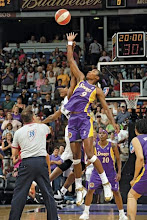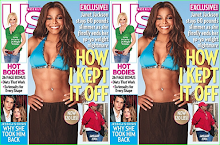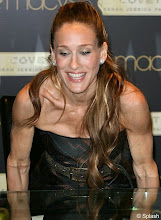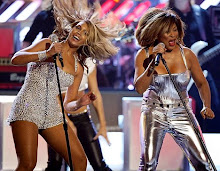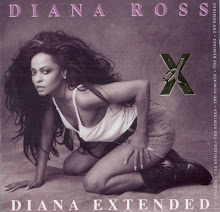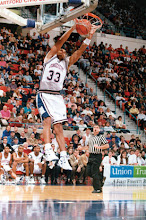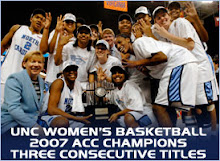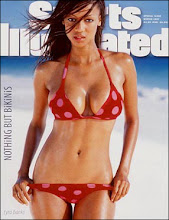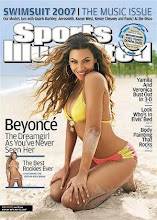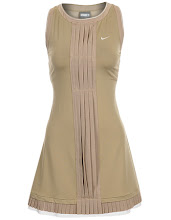Surprisingly, Women’s Basketball is more popular outside the United States, as many players go abroad to earn more money in places like Europe. Given the immense popularity of men’s Basketball in America this fact is somewhat shocking. Also women’s sports in general have been gaining more attention and becoming more lucrative, thus one would assume that women’s basketball would be one of the major beneficiaries. However this is not the case. So the question is why is women’s basketball more popular in foreign countries than here? In my opinion, the answer lies in the racial make up of women’s basketball leagues. The WNBA is predominately comprised of African American females, while European leagues are not. Before the WNBA was set up in the mid-1990’s, Europe and Asia had well established women’s basketball leagues which received much attention.
While European Women’s leagues are still trying to gain support, there does not seem to be the disparity in popularity between men and women’s basketball that exists in the U.S. Many theorists suggest that the image of American women’s basketball suffers because of the negative stereotypes associated with black women; such as hypersexuality, and bad motherhood. These oppressive ideologies could be the reason why women’s basketball does not receive as much media attention. Sports are a multi-billion dollar industry, Men’s Basketball profits extremely well, however women’s does not. It seems that these negative associations make large endorsement companies reluctant to associate themselves with the sport. Because of its reputation women’s basketball seems incompatible with mainstream society. Sports media and companies only market things that will be profitable, therefore given the challenge that the WNBA provides to mainstream norms or race, gender and sexuality, it becomes marginalized.
I was surprised to find when conducting research on sports magazine covers that black female basketball players were rarely present. In its 10 years of existence, ESPN magazine has never had a black female basketball player on the cover. There have however been other black female athletes on covers, mainly from tennis (Venus and Serena.) Furthermore there have been white female basketball players. Thus it seems that the problem is not necessarily with black female athletes, or with women’s basketball players, but it arises when the two combine. This suggests that the message a black female basketball player sends is thought too controversial. Therefore, the white female is used as a marketing ploy to try and attract people to the sport. This is unfortunate because many black female players do not get the recognition they deserve. I feel that the reason European women’s basketball is more popular is because this scenario does not occur. European leagues are dominated by white women, and therefore basketball perhaps does not have the same stigma attached to it as it does in America.
The case of women’s basketball appears to be an example of the difficult position black women occupy in America. Multiple prejudices or race, gender, sexuality and other factors often create an unfair stigma which undermines their attempts for success. Given that they are often kept from the more prominent female sports (country club sports such as tennis, and hockey) because of socioeconomic reasons, Basketball has become a realm in which they can shine. However once again here we see how prejudices hinder black women, robbing them of the credit that they deserve.
Friday, April 18, 2008
Friday, April 11, 2008
Blaming the Victim: Women, Music and Violence
In one of my classes this week, we were having a discussion about physical and sexual violence against women. It was strange to witness because there was a somewhat ambivalent response to how we could control or reduce this. Are women to blame, do they call it upon themselves? Or are men completely at fault? We spoke about various scenarios and possible solutions, but given the magnitude and sensitivity of the situation, we could not reach and reasonable conclusion. I read an article that greatly disturbed me. It was based in a statement made by a rape offender, who placed the bulk of the blame on the victim. He stated that the female encouraged him; through flirting and other gestures. This tendency to blame the victim is almost always frustrating, but seems ludicrous in this case. No female asks to be raped, but by saying this it diminishes responsibility from the male, and women are left vulnerable.
This made me wonder why blaming women has become so easy, I feel the media plays a strong role in it. The way that women are now portrayed not only sexually objectifies them, but often makes them seem sexually initiating. By this I mean that these previous objects are now given a voice through which they can also verbally express their sexuality. Songs such as Maria Carey’s; Touch My Body, and Amerie’s, touch are examples of this in the music industry.
Amerie Touch Lyrics:
Verse 1]
He's lookin' like he can't believe this
Always in my jeans
And bet he don't know what I'm thinkin' (I wanna take him home with me)
This here's gonna be my weekend
I don't think he knows that I see him
His body gots me weak (and I can't wait to see)
[Hook]
What I really want is for him to do to me what he wants to (oh)
He would want to, yeah (oh)
He can come inside my mind
If he tried but he don't know how I want to (oh)
Baby, don't you know what you get from me
[chorus]
Don't be afraid to touch
I know you think I'm a good girl
Don't you think a girl like me can be (touched)
Don't be afraid to touch
I know you think I'm a good girl
Don't you think a girl like me should be (touched)
These lyrics demonstrate how the voices women gain the media often complicate their positions further. It plays into male fantasies that are created in their own music, and serve as a way to legitimize them. This female voice is substituted for one that males normally create for them. This can be seen in Usher’s new single; Lets Make Love In This Club;
You say you searching for somebody
That'll take you out and do you right
Well come here baby and let daddy show you what it feel like
You know all you gotta do is tell me what you sippin' on (sippin on sippin on) (ey)
And I promise that I’m gonna keep it comin’ all night long
(hook)
Lookin’ in your eyes while you on the other side
I cant take it no more baby im comin for you
You keep doin’ it on purpose whindin and workin’ it
If we close our eyes it could be just me and you
The lines ;“ I cant take it no more baby im comin for you
You keep doin’ it on purpose whindin and workin’ it ,“ are particularly demonstrative of this point. Saying that he can’t take it anymore, and then suggesting that she is doing it purposely to attract him, makes the female accountable. Her enchanting nature seduces the male. Therefore it is not his fault, because she has initiated the scenario. Lyrics such as Amerie’s provide a female perspective that supports and legitimizes what has been created by male artists.
This raises questions as to just who is writing these songs, and whether or not they are aware of the consequence. Mariah Carey said that she did not want to make the song Touch My Body, but that is what the industry often requires. This suggests that she was pressured by the record label. Record label executives are almost always men, as are music producers, and I would assume writers also. Thus while women are being given greater access into the industry, they do not have complete control over creativity. And what is worse is that they could well be being used by males to serve their own purposes.
I am not saying that music or other forms of media are responsible for physical or sexual crimes against women, however I do feel that help create a discourse that leaves women vulnerable. In such cases women are shown as initiators, therefore making it easier to place blame on them.
This made me wonder why blaming women has become so easy, I feel the media plays a strong role in it. The way that women are now portrayed not only sexually objectifies them, but often makes them seem sexually initiating. By this I mean that these previous objects are now given a voice through which they can also verbally express their sexuality. Songs such as Maria Carey’s; Touch My Body, and Amerie’s, touch are examples of this in the music industry.
Amerie Touch Lyrics:
Verse 1]
He's lookin' like he can't believe this
Always in my jeans
And bet he don't know what I'm thinkin' (I wanna take him home with me)
This here's gonna be my weekend
I don't think he knows that I see him
His body gots me weak (and I can't wait to see)
[Hook]
What I really want is for him to do to me what he wants to (oh)
He would want to, yeah (oh)
He can come inside my mind
If he tried but he don't know how I want to (oh)
Baby, don't you know what you get from me
[chorus]
Don't be afraid to touch
I know you think I'm a good girl
Don't you think a girl like me can be (touched)
Don't be afraid to touch
I know you think I'm a good girl
Don't you think a girl like me should be (touched)
These lyrics demonstrate how the voices women gain the media often complicate their positions further. It plays into male fantasies that are created in their own music, and serve as a way to legitimize them. This female voice is substituted for one that males normally create for them. This can be seen in Usher’s new single; Lets Make Love In This Club;
You say you searching for somebody
That'll take you out and do you right
Well come here baby and let daddy show you what it feel like
You know all you gotta do is tell me what you sippin' on (sippin on sippin on) (ey)
And I promise that I’m gonna keep it comin’ all night long
(hook)
Lookin’ in your eyes while you on the other side
I cant take it no more baby im comin for you
You keep doin’ it on purpose whindin and workin’ it
If we close our eyes it could be just me and you
The lines ;“ I cant take it no more baby im comin for you
You keep doin’ it on purpose whindin and workin’ it ,“ are particularly demonstrative of this point. Saying that he can’t take it anymore, and then suggesting that she is doing it purposely to attract him, makes the female accountable. Her enchanting nature seduces the male. Therefore it is not his fault, because she has initiated the scenario. Lyrics such as Amerie’s provide a female perspective that supports and legitimizes what has been created by male artists.
This raises questions as to just who is writing these songs, and whether or not they are aware of the consequence. Mariah Carey said that she did not want to make the song Touch My Body, but that is what the industry often requires. This suggests that she was pressured by the record label. Record label executives are almost always men, as are music producers, and I would assume writers also. Thus while women are being given greater access into the industry, they do not have complete control over creativity. And what is worse is that they could well be being used by males to serve their own purposes.
I am not saying that music or other forms of media are responsible for physical or sexual crimes against women, however I do feel that help create a discourse that leaves women vulnerable. In such cases women are shown as initiators, therefore making it easier to place blame on them.
Friday, April 4, 2008
I was walking past a magazine rack this week, and was again struck by how preoccupied many tabloid magazines are with body image. One cover said something along the lines of; The Best Hollywood Bodies, and how you can get them. Also I found that when it comes to women there is always this focus on food and exercise, while with men it seems just exercise. Artists such as Rihanna and almost all other women were talking about how carbs were their ‘enemy.’ Rihanna said that two weeks before she goes on holiday she would be very strict about what she eats, and also does Pilates intensively.
The problem is not with these celebrities, but rather it is the message this sends to average women and girls in society. Being in good shape is part and parcel of being a performer or an athlete, however this in involves great dedication. Time, energy and money are key to achieving this; athletes and performers literally spend hours a day refining their bodies. They often also have personal trainers and chefs that may live with them; it is an extensive process. However this is not portrayed in magazines, rather achievement of similar bodies is made to look very accessible. We are told that cutting carbs, and lifting dumbbells for ten minutes every day will get you this perfect body. This I feel is where the problem lies, and what makes it so dangerous. Female viewers can become convinced that they too can achieve this and might therefore embark on extensive measures to do so, which can in the worst case end up us eating disorders.
Whether such magazines are doing this purposely or are to blame for increasing problems of female eating disorders, is difficult to answer, and also in many ways is irrelevant. While it may not be purposeful, the fact still remains that they still have great effects on women. By omitting certain details such magazines provide readers with inaccurate information that could potentially have a great effects on them. Ideally these magazines would stop focusing so heavily on body image, however even if they continue to, I suggest that they be more careful with what they print.
Studies have found that women who tend to read such magazines are the ones that have the greatest problems with self-image. I know people who have been influenced by these, and I myself was too. I feel that I am less affected by such magazines now, however it has taken me a long time, and three years of college education in women’s issues. This is not something that everyone has access to, and so I feel that popular media has a moral responsibility to their audiences. They must be more sensitive to the issues women are facing, and how they often make these harder.
The problem is not with these celebrities, but rather it is the message this sends to average women and girls in society. Being in good shape is part and parcel of being a performer or an athlete, however this in involves great dedication. Time, energy and money are key to achieving this; athletes and performers literally spend hours a day refining their bodies. They often also have personal trainers and chefs that may live with them; it is an extensive process. However this is not portrayed in magazines, rather achievement of similar bodies is made to look very accessible. We are told that cutting carbs, and lifting dumbbells for ten minutes every day will get you this perfect body. This I feel is where the problem lies, and what makes it so dangerous. Female viewers can become convinced that they too can achieve this and might therefore embark on extensive measures to do so, which can in the worst case end up us eating disorders.
Whether such magazines are doing this purposely or are to blame for increasing problems of female eating disorders, is difficult to answer, and also in many ways is irrelevant. While it may not be purposeful, the fact still remains that they still have great effects on women. By omitting certain details such magazines provide readers with inaccurate information that could potentially have a great effects on them. Ideally these magazines would stop focusing so heavily on body image, however even if they continue to, I suggest that they be more careful with what they print.
Studies have found that women who tend to read such magazines are the ones that have the greatest problems with self-image. I know people who have been influenced by these, and I myself was too. I feel that I am less affected by such magazines now, however it has taken me a long time, and three years of college education in women’s issues. This is not something that everyone has access to, and so I feel that popular media has a moral responsibility to their audiences. They must be more sensitive to the issues women are facing, and how they often make these harder.
Subscribe to:
Posts (Atom)


